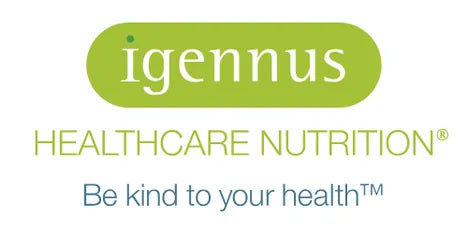In part one of your health reset we focused on supporting the body by eliminating toxins that have not only built up over the festive period, but that the body produces on a daily basis. In part two, we focus on how toxic load can be reduced to remove some of the burden placed upon the body, including the liver in the first instance and how to optimise the overall health of the detoxification organs.
Some toxins are more obvious than others, with the main sources including alcohol consumption, cigarette smoke, use of narcotics and chemical exposure. Not only do these toxins place a burden on the liver and body overall, they can also cause oxidative stress and damage to the cells of the body.
How to effectively reduce alcohol consumption
Whilst pledges such as dry January work well in helping to reduce alcohol consumption, many of those who take part can often feel deprived of something they otherwise enjoy and therefore consume more when the pledge is over. Rather than depriving yourself completely, consider forming new healthy habits that may help you in the long term to sustain lower consumption of alcohol. If you are considering reducing your alcohol intake, here are some tips to help you set long-term habits:
- Download an app such as DrinkAware to become aware of how much alcohol you consume, and set yourself some goals to help decrease this
- If you don’t like a bottle of wine to ‘go to waste’, consider buying smaller 250ml size bottles
- Replace every other drink with a glass of water to effectively reduce your intake by 50% and support hydration of cells
- Try to set a goal for alcohol-free days during your week
- Instead of a double, opt for a single; half a pint instead of a full pint; or a small glass of wine rather than a large glass
Whilst toxins can come from alcohol consumption, smoking, narcotics and chemical exposure, they can also come from less obvious substances that are in the home, sprayed on vegetables, in food containers, fed to the animal whose produce we consume, and also beauty products which we apply directly to the face and body. These chemicals not only place a burden on the liver, they can also disrupt the healthy balance of hormones within the body, affect sperm quality and fertility, immune health and are also linked with chronic illnesses.
Whilst it can initially be quite daunting to think of the many sources of chemicals in our environment and the negative impact they may have, simply being aware of your toxin exposure is one of the first steps in reducing the impact they have on your health.
Organic food reduces chemical exposure from pesticides and herbicides
Purchasing organic food is a very easy step that requires minimal effort to help reduce your toxic burden; simply look for the organic option in your supermarket. As organic foods have restrictions regarding the use of pesticides and herbicides, they may not last as long as non-organic fruits and vegetables so be sure to buy little and often rather than in bulk if you are not able to consume it all straight away. As organic fruit and vegetables have a shorter shelf-life, you may also find that it isn’t possible to purchase all your fruits and vegetables organically. This is because organic foods are more likely to be produced locally and, unfortunately, we do not have the tropical or warmer climates of other countries to produce tropical fruits all year round. Fruit and vegetables that have been locally sourced will provide the nutrients required for the time of year in which they are harvested, and also tend to have a higher rating for antioxidant potential, providing protection to the cells from the harmful effects of chemical exposure. If you are unable to buy organically, ensure you wash produce to remove as much chemical residue as possible before consuming.
Here are some additional simple tips to help you reduce your toxin exposure around the home:
- Don’t heat foods in plastic. Instead, empty your portable lunch box into a bowl or onto a plate if reheating in the microwave
- Ensure any plastic containers used, including water bottles, are BPA free
- Ensure soya products are not genetically modified; the label should identify non-GMO
- Consider natural sources of house-cleaning products which are chemical free, or create your own from natural ingredients
- Consider grass-fed meats and organic dairy products where possible
- Drink filtered water rather than water straight from the tap
- Check out this article for chemical free health and beauty product recommendations
Counteracting the negative effect of toxins with antioxidants
As mentioned, toxins can lead to oxidative stress in the cells of the body. Whilst the body has inbuilt antioxidant capabilities to counteract some of the damaging effects of oxidative stress, an imbalance can arise, with long-term oxidative damage linked with many chronic health conditions. Again, whilst reducing your exposure to toxins is a great way to keep the body’s antioxidant capabilities in balance, increasing your intake of antioxidant-rich foods will provide further support. Some of the highest scoring antioxidant foods include herbs such as oregano, rosemary and peppermint; spices such as cinnamon, turmeric and szechuan pepper; cacao powder; fruits such as pomegranates, bilberries, raspberries, blueberries and cranberries. Here are some easy ways to increase your antioxidant intake:
- Set up a windowsill herb box – both low-cost and low-maintenance
- Steep herbs in hot water for a homemade herbal tea; add to cold water for a refreshing infusion; add in to soups, stews and curries
- Add cinnamon to porridge, smoothies, to golden milk or overnight oats
- Add your favourite berries to your porridge to add a sweeter flavour, or prepare a small container for your afternoon snack with some Greek yoghurt and nuts
- Make your own chocolate using raw cacao powder which you can purchase from most health food shops.
- If you’re looking for a supplement to fall back on, astaxanthin is considered the king of antioxidants, with a higher antioxidant capacity than all of the aforementioned foods and 6000x the antioxidant potential of vitamin C. Supplement with 1 capsule of Pure & Essential AstaPure Astaxanthin daily to keep your antioxidant levels topped up
Need a deeper clean – look within
Reducing your toxic burden is not only a matter of reducing chemical exposure but also reducing internal stressors on the body from lack of sleep, emotional and physical stress, lack of sunlight and so on. During the winter months, it can be difficult to get natural daylight, and the festive season can definitely take its toll on sleep and stress levels; however, these are things that need to be prioritised to maintain health year-round.
Get outdoors to lift your mood
Daylight makes us feel better for a reason; the sun showers cells with the all-important vitamin D required to support a healthy immune system and stimulates the pineal gland (located in the brain) to reduce the production of melatonin, the sleep hormone, leaving us feeling more vibrant and full of life. During the winter months, however, not only do we have reduced hours to obtain natural daylight, but the sun’s rays are also not strong enough to maintain the healthy vitamin D levels often built up during the summer. Seasonal affective disorder (SAD) can follow from a lack of daylight, with symptoms affecting sleep patterns, low mood and even loss of interest in usual activities – counterproductive to your health reset. If this sounds like you there is a simple solution – get outdoors and obtain as much natural daylight as possible, preferably in the morning. Whilst 30 minutes should provide adequate sunlight exposure, you may want to consider a therapeutic light such as Lumie’s Vitamin L for use on overcast days or when you simply are unable to get outdoors. Here are some simple tips to help you obtain maximum daylight exposure:
- Take a 30 minute walk on your lunch break – use the time to listen to your favourite soundtrack or podcast
- Make your phone calls outdoors, either in the garden or at the local park, stretching your legs and getting some movement whilst outside for additional ‘brownie points’
- Going out for a coffee? Wrap up warm and sit outside
- Arrange outdoor activities at weekends – walk around the local country park or head for a seaside stroll
- Heading to the shops? Opt for the local town or village rather than a covered shopping centre.
- If you’re feeling adventurous, try an outdoor hobby such as running, cycling or even ‘boot camp’
Sleep away the stressors of your day
We all know the importance of sleep yet many aren’t obtaining their optimal amount of hours for various reasons. Sleep is required, however, to allow the body to renew brain cells, stabilise mood, maintain a healthy weight, regulate hormones and replenish energy, meaning that a lack of sleep will have a negative effect on overall health status. Whilst increasing your daylight exposure will have a positive effect on your sleeping pattern, seize the possibility at New Year to set some new, healthy sleep habits.
In the same way that lack of natural daylight can negatively affect sleep, too much blue light in the evening can also have the same effect. The artificial blue lights from computer screens, televisions, mobile phones and tablets can wrongly signal to the brain that it is still daylight and therefore block the secretion of melatonin, which is clearly particularly counterproductive late in the evening if you are using social media before bed. If you struggle to sleep at night, consider a 30 to 60 minute window of technology-free time to see if this has a beneficial effect. You could also consider alternative lighting in your bedroom with blue light filtering bulbs, or invest in a pair of blue light blocking glasses to wear in the evening.
You need only consider the mood of a young child to notice that the body likes routine when it comes to sleep, so it is important to try and establish a realistic sleep and wake time. Whilst you may need to get up earlier during weekdays and favour late nights and lie-ins at the weekend, this may both reduce your sunlight potential at weekends and leave you with a lack of energy on Monday when your alarm wakes you several hours earlier than your waking time over the weekend, leaving you feeling much like a young child who had a late night before a school day. By establishing a realistic sleep and wake time, you will become aware of your natural circadian rhythm and stabilise both your energy and mood levels. Whilst establishing a healthy sleep routine is important, this is not a hard and fast rule and you should listen to your body if you require more sleep. You may benefit more from an early night than a lie-in, however, if you are already in a good sleep routine.
Stress is a normal and healthy reaction – the way you manage it is key
There is no right or wrong way to deal with stress but it is important to be able to identify when you are feeling stressed, whether physically, mentally or emotionally, and support your body appropriately. Symptoms of heightened stress levels can include low mood, anxiety, erratic energy, digestive problems and poor immunity – one of the reasons you often get sick the moment you take a break from a hectic lifestyle. Sources of stress to the body can include lack of sleep, lack of sunlight, lack of correct nutrition, too much physical exercise, trauma, heavy toxic load and use of drugs and alcohol. Whilst many of these aspects have been mentioned both in this and the previous article, it is important to be aware that the body’s demands for both nutrients and TLC are increased when in a state of stress, and it is your responsibility to provide it. Here are some quick tips to help you replenish a stressed soul:
- Eat a protein-rich breakfast to support your energy on a stressful day – smoked salmon or scrambled eggs with avocado and spinach on a slice of rye should do the trick
- Make a green smoothie to snack on by blending pineapple, cucumber and spinach with your favourite nut butter and milk
- Add an extra portion of vegetables/salad to your meals to increase your nutrient intake
- Drink chamomile tea to help you relax
- Switch your normal exercise routine to something more gentle – try an outdoor walk or a yoga class
- Watch your favourite comedian or comedy show to help soothe your stressors
- Have a spare 10 minutes – try some meditation or deep breathing to give the mind and body a moment of calm
- Take an evening out of your normal routine to have a relaxing bath with Epsom salts, read a book or watch a movie
- Go to bed an hour earlier to obtain more sleep
- Try a lavender room spray or scented candle to help induce sleep
- Try MindCare BALANCE to provide a source of magnesium, B vitamins and vitamin C; essential nutrients the body can quickly deplete during times of stress
Hopefully, you’ve already taken many of these suggestions on board and are therefore already reducing the toxic load potential to your body. If you feel that this sounds like a lot of work, start slowly with those changes you find easier to implement, and gradually build on this at your own pace, perhaps making one new change each week. This will help to keep the momentum up but also increase the longevity of your new healthy habits. Don’t forget, the key is balance and you are not expected to implement all of the suggestions, but find what works best for you and focus on the healthy changes rather than the old, less healthy choices. In the final part of the health reset, we will look at the key nutrients and richest food sources that support the long-term health of the body and the detoxification organs.








